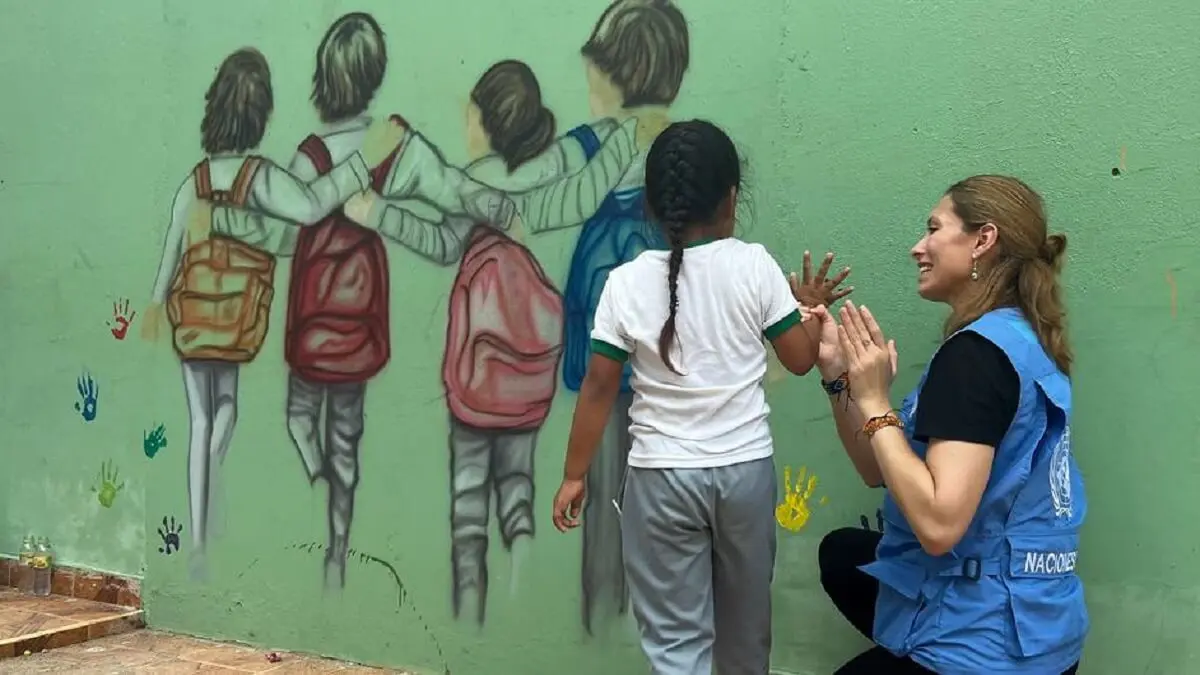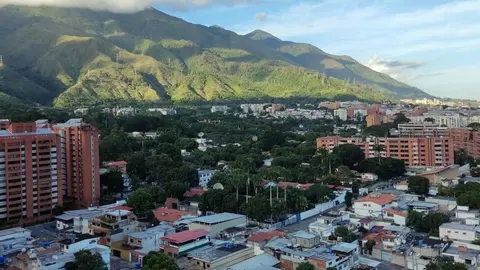Colombia: despite some reduction in violence in 2023, the lives of many communities remain under threat

The latest report of the UN High Commissioner for Human Rights on Colombia notes that in 2023 there was "a decrease in some indicators of violence".
- Violence against women
- Violence against human rights defenders
- Law enforcement violence
- Recommendations
However, it stresses that "continued territorial expansion and violent strategies of social and territorial control by non-State armed groups and criminal organisations against the civilian population (...) continue to threaten the physical and cultural survival of several peoples and historical organisational processes".
The Office received 123 allegations of possible massacres in 2023. Of these, 98 were verified and 25 were considered inconclusive.
According to the report, there was an increase of 6.5 per cent compared to the verified massacres in 2022, which recorded 320 victims (242 men, 46 women, 25 boys and 7 girls). Of the total number of victims, 18 belonged to ethnic groups (15 indigenous and 3 Afro-descendants). The most affected departments were Antioquia, Atlántico, Cauca, Magdalena, Nariño and Valle del Cauca.
In 93% of the verified massacres, the alleged perpetrators were non-state armed groups and criminal organisations.
In 2023, approximately 62,967 persons were displaced and 87,646 confined. These figures represent a 22.9% decrease in displacement and a 14.3% decrease in confinement compared to the information for 2022. Some 55% of those displaced and 79% of those confined in 2023 belong to ethnic peoples.
In addition, 48 former FARC-EP members were killed in 2023. This represents a decrease of 5.9% compared to 2022. Since the signing of the Peace Agreement, 408 former FARC-EP members have been killed, including 11 women.
Violence against women
The Office received 100 allegations of gender-based violence in the framework of the armed conflict, including sexual violence, and documented some cases of trafficking for sexual exploitation against girls by non-state armed groups, who are allegedly being transported to their camps to be sexually exploited by their members in Chocó and Nariño.
In addition, the Office of the High Commissioner continued to document femicides, sexual violence and cruel, inhuman and degrading treatment by non-state armed groups against women accused of being partners of members of rival groups or members of the security forces.
It also learned of situations of threats, displacement or violence against LGBTIQ+ persons because of their sexual orientation or gender identity. Most cases are not reported, which shows the need to implement strategies for comprehensive and confidential attention to women, girls and LGBTIQ+ persons in the territories.
Regarding violations of the human rights of minors, the Office verified 134 cases of recruitment, use or utilisation of children in the armed conflict by non-state armed groups and criminal organisations (86 boys, 42 girls, 6 without gender confirmation).
"There is still a high under-reporting of these violations, so these figures are only a sample of a phenomenon of greater magnitude. It is of particular concern that in 75 cases, the victims belonged to ethnic groups (71 indigenous and 4 Afro-descendants). In 37 of the cases, the victims suffered multiple rights violations.
Violence against human rights defenders
Although there was a 9.5% decrease in verified killings of human rights defenders compared to 2022, "violence against defenders remained intolerable".
The Office received 233 allegations of killings of human rights defenders. In 105 cases, there was a verified link between their death and their work in defence of fundamental rights, and 128 were inconclusive. Of the cases verified, 14 were women, 87 men, one non-binary person, two gay men and one transgender woman.
Law enforcement violence
The Office received 37 allegations of arbitrary deprivations of life allegedly committed by members of the Police and Military Forces, of which 30 were verified and 7 are still in the process of verification.
The Office also received 36 allegations of other alleged human rights violations by members of the security forces, of which 18 have been verified.
Recommendations
In its report, the High Commissioner makes a series of recommendations, among them to make every effort to deploy a comprehensive presence in strategic points of the country in order to recover and extend the State's territorial control in the face of the actions of non-state armed groups and criminal organisations.
It also recommends strengthening institutional capacity to improve the protection of the civilian population in the territories.










